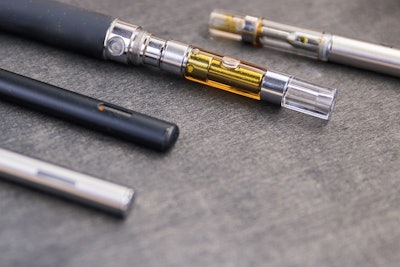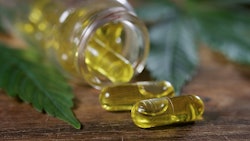
Cannabis retailers are the gatekeepers between the producers of cannabis-derived products and consumers, and, as such, it is critical that they vet vendors and their wares to ensure safety and quality, especially in light of the vape-related lung illness that has swept the nation.
Here, Michael Harinen, chief brand officer at Bluebird Botanicals, a manufacturer and distributor of hemp and CBD extracts, shares insight on what’s in these products, the risks associated with certain ingredients, and how dispensaries can vet manufacturers and help preserve public health.
Cannabis Dispensary: What other chemicals and compounds are commonly found in CBD oil and other cannabis-derived products, aside from cannabinoids?
Michael Harinen: It depends on the type of product. Full-spectrum hemp extracts typically contain the whole host of compounds found in the cannabis plant even beyond cannabinoids. This includes terpenes (which are responsible for the taste and smell, along with subtle physiological effects), flavonoids, omega fatty acids, trace minerals, vitamins and more. They’re also typically blended with some sort of carrier oil. For example, Bluebird uses either organic hemp seed oil, organic extra virgin olive oil or MCT oil from coconuts, depending on the blend.
Other types of products found on the market may contain artificial ingredients, such as sweeteners, flavor-maskers, gelatin or other types of filler ingredients. Likewise, since cannabis is a known bioaccumulator, CBD oils could potentially be contaminated with heavy metals, mycotoxins and more. It’s important to invest in high-quality cannabis suppliers to avoid these types of contaminants.
RELATED: What’s in Your Vape Cartridge?
CD: What potential dangers or impacts could these additional chemicals and compounds have on consumers and patients?
MH: It again depends on the type of product and where it’s sourced from. The natural chemicals and compounds extracted from the cannabis plant are generally beneficial, not harmful. However, the aforementioned contaminants can be dangerous to consumers’ health, as well as any potential filler ingredients, cutting agents or preservatives, such as vitamin E acetate, which has been linked to the recent string of lung illnesses from vaping.
CD: What should purchasing managers at dispensaries be asking CBD and vape manufacturers when vetting them and their products to ensure product quality and safety, especially in the wake of the recent outbreak of vape-related illnesses?
MH: The two most important questions to ask are where are the ingredients sourced from, and how are the products tested. Every CBD and vape manufacturer should be employing careful scrutiny to every aspect of their supply chain. This includes the suppliers of their cannabis and other added ingredients, as well as the operating practices of any co-manufacturers.
Likewise, every CBD company should be investing heavily in third-party laboratory testing to ensure their products are safe and contain what they are expected to contain. It is best practice for cannabis companies to publicly provide COAs or raw test results so that anyone interested in purchasing their products can verify the safety and quality with their own eyes.
CD: What are some red flags that might indicate that a particular manufacturer or product might be potentially unsafe or not of the best quality?
MH: If the manufacturer isn’t transparent about their sourcing or is using imported cannabis, that’s generally a big red flag. Imported cannabis typically foregoes the same kind of testing that’s applied to domestic cannabis, which means it could potentially be laden with contaminants.
If the company doesn’t provide any sort of public COAs or conduct third-party testing on their products, that’s a big no-no. Without that sort of testing, there’s no way to ensure the safety of the product.
CD: What are some other general best practices that dispensaries should implement when deciding which products to stock?
MH: Research the brands carefully ahead of time. Hunt down information about their third-party testing—if they’re doing it properly, it shouldn’t be hard to find. Look for consumer reviews both on their website as well as on third-party websites. The best products will have the best consumer reviews because the products actually work. Look at where else their product is being carried—if the brands are available in notable retailers, that’s a good sign that the products have held up under intense scrutiny.
Look for industry certifications on safety and quality, such as the U.S. Hemp Authority and Glyphosate Residue Free certifications. Get on the phone with a real person from the company and ask lots of questions—if they know what they’re doing and are doing it well, you should be able to get all of the information you need.

























